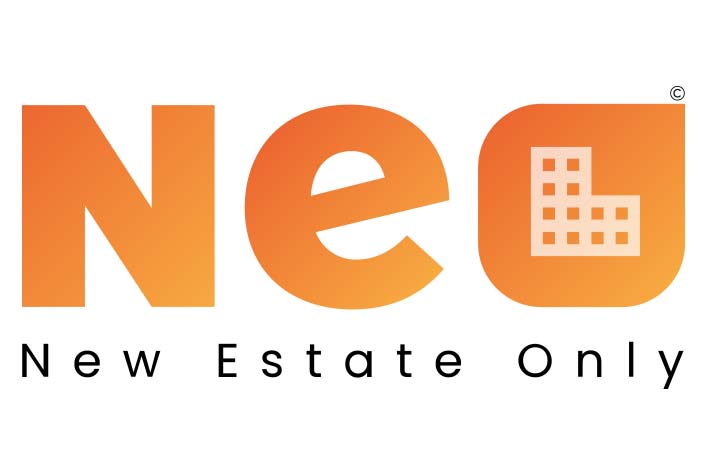FAQ: a guide to Conscious Investing in the United States.
Here you will find all the answers to the most frequently asked questions that our clients have raised over the years, essential for delving into various aspects related to real estate investment in the United States. We will explore various aspects such as the potential need for a visa to purchase property in the USA, the bureaucratic process related to acquiring real estate investments, issues related to property taxation, and legal and regulatory constraints to consider. If you don’t find the information you’re looking for, don’t hesitate to contact us.

General Information
OPISAS will assist you in every step; we have agreements in place with a number of the leading banks in America and can help you through the process of creating a business account with access to E-Banking and with a VISA Debit card.

Fiscal and legal aspects
In the United States, the business purpose is not strictly binding and may provide more than one type of business. It is indeed very broad, and includes " any activity that may be conducted in the State ", with the exception of certain assets, such as the banking or trust, import-export, etc.
Since they are a confederation, the United States have different levels of taxation.
Income taxes are divided into:
– Federal Tax, which is the same for all states for both individual subjects and for companies. The brackets provided for this tax vary from a minimum rate of 10% to a maximum rate of 37%.
– State Tax, the rates of which vary depending on the state of reference.
In most cases, a company that owns a limited number of properties will fall in the minimum rate (and is not expected to pay any fee), thanks to the deduction of almost all the costs from the tax total.
No; however OPISAS does recommend this practice and can assist in all aspect of set-up.
The purchasing costs in the United States of America are the same in both cases whether buying personally or as a company. From the point of view of American taxation, it tends to be always more advantageous to buy as a corporation/partnership/LLC as costs can be deducted (including air travel to visit the property, living expenses, maintenance costs and management fees, etc). Including also is the depreciation of the unit which is calculated at 27 years (1/27th) of the property purchase price.
An LLC (Limited Liability Company), which would be a limited liability company type, can be created and incorporated via the internet at www.sunbiz.org. OPISAS can provide advice on this and also the steps necessary to obtain the Employer Identification Number (EIN), which is essential to make the company active.

Purchasing procedures
In order to start the purchase process related to an OPISAS property, the client shall compile the reservation form. The form has to be filled in each section with the buyer(s) data, and countersigned at the bottom.
Alongside the duly filled Reservation Form, the Client is requested to process the payment of the Reservation/Closing Fee, amounting to $3,200* (a one-time fee). This fee encompasses administrative expenses and taxes associated with the acquisition of an Invest property, covering the preparation and registration of various contracts, along with related taxes in accordance with US law.
For those opting for the additional service of opening a U.S. Company provided by Opisas, an extra $1,400** is applicable. This service includes the establishment of your dedicated U.S. Company, compliance with the Transparency Act, appointment of a Registered Agent, domiciliation, mailing services, EIN request (Employer Identification Number), and assistance in initiating the company’s bank account.
*Please note that this amount may vary based on specific locations.
**For Corporation structures, an additional $400 will be incurred.
Purchase Contract
Once the reservation has been confirmed with the payment of the admin fees, and that copy of client’s passport and of the completed reservation form are submitted, the client will receive the “purchase contract” employed and approved in the specific US state that hosts the property in question. Such contract will be sent to the buyer, completed with both the buyer’s and the seller’s data, along with all the information about the specific property, the terms for payment, the closing date and any other sale information or condition.
Property Management Contract
Along with the purchase contract, buyer will also receive a contract with the property management company that will manage the property on behalf of the new owner. The same property management company will be responsible for paying utilities, collecting rental fees and any other occurrence related to the management of the property. The aforementioned contract will be sent partially compiled to the buyer, any missing field shall be compiled by the buyer and sent back before closing.
Closing Statement
When the transaction will be ready for closing, buyer and seller will receive a “Closing Statement” from the Title Company/Settlement Agent. The “Settlement Statement” is also called “U.S Department of Housing and Urban Development (HUD) statement”. The document reports the amounts due to seller and buyer in order to successfully perform the purchase. The payment of the due amount shall be performed within closing date. The document needs to be signed and sent to the Title Company in order to officially register the sale on the county’s public register.
Warranty Deed
Once the purchase process has been completed, the buyer will receive, after about four weeks, the original copy of the “Warranty Deed” and the “Owner’s Policy”, documents that certify the new ownership of the property.
An electronic version of the “Warranty Deed” is usually available online about 7 days after the closing date. The document can be downloaded from the county’s online register and, if requested, it can be sent by email to the new buyer.
Closing costs are the expenses, over and above the price of the property, that buyers and sellers normally incur to complete a real estate transaction.
Costs incurred may include loan origination fees, appraisal fees, title searches, title insurance, surveys, taxes, deed-recording fees and credit report charges.
Closing costs occur when the title of property is transferred from the seller to the buyer. The total dollar amount of closing costs depends on where the property is being sold and the value of the property being transferred. Homebuyers typically pay between 2% to 5% of the purchase price.
Here is a list of fees that may be included in closing:
– Appraisal: This is paid to the appraisal company to confirm the fair market value of the home.
– Attorney Fee: This pays for an attorney to review the closing documents on behalf of the buyer. This is not required in all states.
– Closing Fee or Escrow Fee: This is paid to the title company, escrow company or attorney for conducting the closing. The title company or escrow oversees the closing as an independent party in your home purchase. Some states require a real estate attorney be present at every closing.
– Courier Fee: This covers the cost of transporting documents to complete the loan transaction as quickly as possible.
– Home Owners Association Transfer Fees: The Seller will pay for this transfer which will show that the dues are paid current, what the dues are, a copy of the association financial statements, minutes and notices. The buyer should review these documents to determine if the Association has enough reserves in place to avert future special assessments, check to see if there are special assessments, legal action, or any other items that might be of concern. Also included will be Association by-laws, rules and regulations and CC & Rs.
– Owner’s Policy Title Insurance: This is an insurance policy that protects you in the event someone challenges your ownership of the home. It is usually optional.
– Property Tax: Typically, lenders will want any taxes due within 60 days of purchase by the loan servicer to be paid at closing.
– Recording Fees: A fee charged by a local recording office, usually city or county, for the recording of public land records.
– Survey Fee: This fee goes to a survey company to verify all property lines and things like shared fences on the property. This is not required in all states.
– Title Company Title Search or Exam Fee: This fee is paid to the title company for doing a thorough search of the property’s records. The title company researches the deed to your new home, ensuring that no one else has a claim to the property.
– Transfer Taxes: This is the tax paid when the title passes from seller to buyer.
OPISAS has simplified all of this thanks to the agreements we have, a client will have to pay a total amount of $3,200 ($4,000 if comprehensive of LLC formation) – $4200 for closings in Maryland ($5,000 if comprehensive of LLC formation), this amount will cover all the costs related to the closing of a property (OPISAS Invest).

Investment management
A homeowners’ association (known as an HOA) is an organisation that oversees a communal housing development, condominium complex, or other such subdivision, where members are responsible for creating and enforcing rules. Often times homeowners’ associations will collect fees or dues in order to cover maintenance and upkeep cost for common areas such as parks and pools.
As such, Homeowner Association Insurance is intended to cover the association, its members, and the exterior structure including the roof as well as its physical assets (if any) from damages arising from property and liability claims. However, homeowner association insurance can help you avoid many of the most common problems faced by communities.
Condos must maintain a minimum amount of insurance coverage through a master policy, which differs from the homeowner’s insurance policy you purchase for your individual unit.
The condo insurance master policy covers claims for major work and repairs to the commonly shared parts of the structure after a hazardous or inclement weather event. The type of hazards the policy protects against are outlined in the policy and may include natural disasters, hurricanes, earthquakes, floods, fire and vandalism. A commercial insurance provider is used for HOA hazard insurance. Items covered by the master policy vary by complex and by state law.
Liability insurance protects the association from claims of bodily injury or property damage for which the association is legally liable and which is caused by an occurrence covered by the insurance policy.
The HOA or COA insurance does not cover the owner’s personal items or the tenants. Your personal insurance coverage does not cover the tenant or the HOA/COA.
For condominiums in general, including even those of luxury, the cost of maintenance as standard includes, except for very short lease durations, the tenant ordinarily pays all costs relating to the supply of consumption of utilities such as electricity, telephone, television and internet. While all the other expenses such as water, waste and building expenses are borne by the owner through the HOA fee. In the case of a single family dwelling even these costs will be paid by the tenant. Other fees, service charges included in the HOA may include the community security service, ascetic upkeep, the use of the communal facilities i.e. tennis courts, gymnasiums, swimming pools, barbeque and picnicking area, boat moorings and the list goes on. So dependant by the community in which you purchase ultimately determines the HOA fee.
The tenant(s) make payment to the management company looking after your property. From this rental the property manager will first subtract and pay on your behalf any utility bills, condo fees and property taxes at year-end. The management company shall transfer the balance of funds to an account nominated by the owner (whichever county you desire) on a monthly, quarterly or annual basis. All incomes and expenses are clearly itemised on your monthly property management account statement.
This is regulated by the municipality and the community, such as June 9, 2010 the municipality of Miami Beach voted "no” against the short-term rentals. The town of Miami Beach is divided into several areas including the areas in which the exercises are permitted commercial and residential areas.
There are three types of residential areas in Miami:
RM- 1: Residential Multifamily, low density. Generally fall into this area all the apartments and houses in the avenues and streets from Drexel Avenue to Bay Road (to the west towards the bay). In the RM- 1 may not rent apartments for less than 6 months.
RM- 2: Residential Multifamily, medium density. Generally fall into this area all apartments on Washington and Collins Avenue. In the RM- 2 is permitted to rent for less than 6 months.
RM- 3: Residential Multifamily, high density. Generally fall into this area all apartments on Ocean Drive. In the RM- 3 is allowed to rent for less than 6 months.
US Law is extremely clear and protects the owner 100%, if a tenant does not pay the rental fees then he/she is going to be evicted, a quick procedure that on average does not require more than 34 days.
Namely, eviction can happen for 3 reasons:
– For failure to pay rental fee. By contract there is on average a period of grace from 3 to 5 days nd a penalty of $ 50. If the tenant does not pay within such time limit, then the owner (Property Manager will directly handle this aspect on your behalf) can send by post a registered mail with return receipt or affix a notice on the property’s door, urging the payment of the missing rental fee within 3 days (Saturdays and Sundays excluded), specifying the total amount due or to evacuate the property. Otherwise, the owner can choose to proceed with the eviction procedures through a lawyer or by directly going to a court.
– For having violated the contract and the prescriptions of the Statement.
– For abandonment. Abandonment, in this case, is meant as being absent for half a month without having paid the rental fee and without having informed the owner of such absence in writing.
Eviction procedures work as follows:
A notice of eviction in writing in case of missing rental fee payment. The tenant has 3 days to rectify the issue or evacuate the property. After 3 days the owner sues and pursues charge against the tenant in a court. The property manager will start all the procedures on behalf of the client after having informed him/her.
Once the tenant has received the pursue of charge, he/she has 5 working days for replying in his/her defense at the court and exposing the case, even though he/she is forced to deposit at the same court the total amount due.
If the tenant does not answer the pursue of charge, the judge will authorize the sheriff to proceed with the eviction. If he/she answers the summon, a date will be set for the hearing.
If the tenant loses the case at the hearing, he/she will have to pay double the total amount due, court expenses and any expense related the owner’s lawyer. If the tenant does not answer the summons, he/she will automatically lose the case.
If the owner wins the case, the judge will issue a warrant to the sheriff, authorizing the owner to take over the property after 24 hours, after having affixed a notice of eviction. At this point the owner or the administrator can legally replace the lock and, after 48 hours from the sheriff’s notification, can take over any eventual belongings left in the unit, which can be resold for retrieving the amount due or other expenses.
No. The apartments are almost always rented without furniture. For the typical annual renter it is cheaper to rent without furniture because it is customary for the tenant to bring with them their own possessions.
If you own the property out right….the choice is ultimately yours. However, most property management companies require insurance for everyone’s protection included the management company. Although it is strongly recommended that you take out a Home Owners Insurance to protect your investment in case of any natural disasters, fire, lightning, hurricanes or any other extenuating circumstances. You should always check with your Insurance Company to understand what IS, and what IS NOT covered in your policy.
Although policies may vary, the major risks covered by homeowners insurance are:
– Damage or loss to the home itself, as well as other structures on the land; (leaks for pipe breaks, a/c leaks, fire)
– Damage or loss to the items of personal property in the home and other structures
– Injury or harm to third parties (typically guests and others who come to your home).

Property resale
OPISAS staff will assist you and guide you through the resale process, giving you an updated picture of the actual market value of the property.
Do you have further questions about investing in the U.S.?
Fill out the contact form and schedule a free call with an OPISAS expert.
What’s in store for you:
- a customized, obligation-free call from our expert team.
- detailed insights on how to achieve an immediate minimum 6% net return.
- strategies to maintain full investment control with unwavering transparency.
- comprehensive management of your U.S. investments through a singular, dedicated point of contact.
- techniques to diversify your portfolio, considering reduced risk factors for a robust investment approach.
To get answers to all your questions, fill out the form and our team will contact you as soon as possible.










